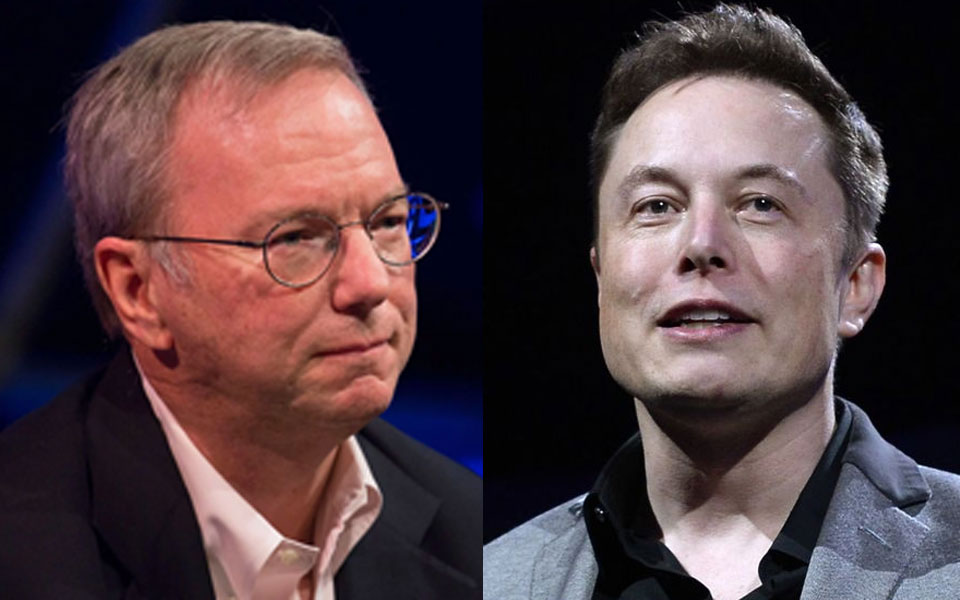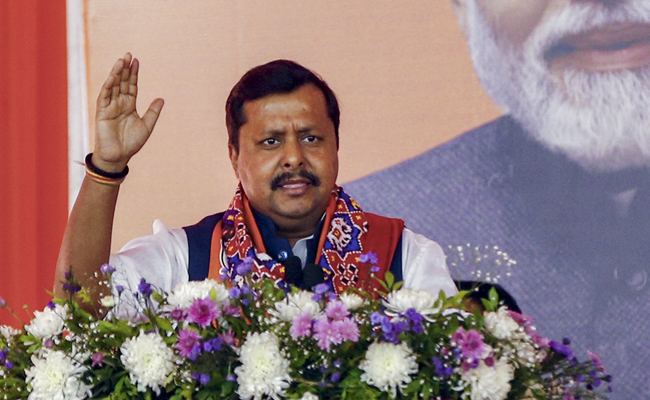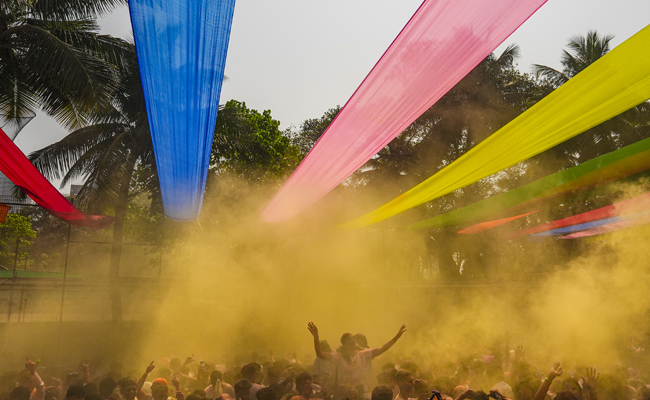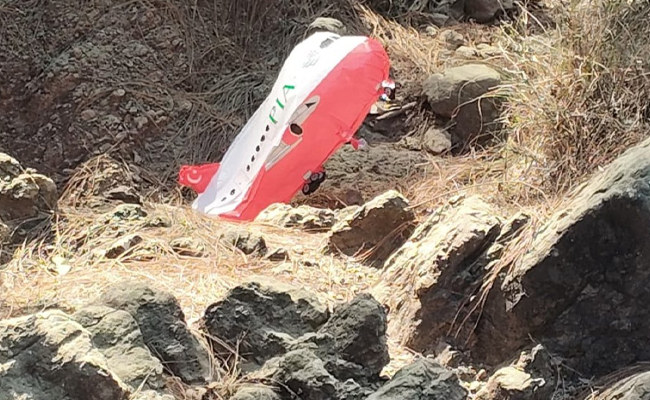San Francisco, May 26 : Tesla and SpaceX Founder Elon Musk's skepticism about Artificial Intelligence (AI) and its impact on human beings is "exactly wrong," former Google CEO Eric Schmidt has said.
Musk thinks that AI is bad for humanity and may spark World War III. "I think Elon is exactly wrong" about AI, Schmidt said during the "VivaTech" conference in Paris on Friday.
"Musk is concerned about the possible misuse of this technology and I am too but I am more convinced by the overwhelming benefit of AI," tech website CNET quoted Schmidt as saying.
"AI will make people smarter and this will be a net gain," said Schmidt who is currently a board member of Alphabet, Google's parent company.
Earlier, during the same event, Facebook CEO Mark Zuckerberg - who has been in verbal spat with Musk over AI for long -- expressed optimism about the possibilities of AI.
"I think that AI is going to unlock a huge amount of positive things, whether that's helping to identify and cure diseases, to help cars drive more safely, to help keep our communities safe," he was quoted as saying.
Mush recently warned that if not regulated or controlled soon, AI will become an "immortal dictator" and there will be no escape for humans.
"At least when there's an evil dictator, that human is going to die. But for an AI there would be no death. It would live forever, and then you'd have an immortal dictator, from which we could never escape," he said in a new documentary titled "Do You Trust This Computer?"
Musk has always been a critic of AI and asked for stiff regulations to curb the technology. In a recent tweet, Musk said that people should be more concerned with AI than the risk posed by North Korea.
"If you're not concerned about AI safety, you should be. Vastly more risk than North Korea," Musk tweeted.
Musk has also quit the board of OpenAI, a non-profit AI research company he co-founded that aims to promote and develop friendly AI that benefits the humanity.
In a recent public spat with Zuckerberg, Musk said: "I've talked to Mark about this (AI). His understanding of the subject is limited".
Zuckerberg replied: "I think people who are naysayers and try to drum up these doomsday scenarios -- I just, I don't understand it. It's really negative and in some ways I actually think it is pretty irresponsible."
Let the Truth be known. If you read VB and like VB, please be a VB Supporter and Help us deliver the Truth to one and all.
New Delhi (PTI): BJP national president Nitin Nabin was on Tuesday nominated as the party's candidate from Bihar for the upcoming Rajya Sabha polls.
The ruling Bharatiya Janata Party (BJP) has released a list of nine candidates for the Rajya Sabha polls, fielding its former West Bengal unit chief Rahul Sinha and Chhattisgarh unit vice-president Laxmi Verma from the respective states.
ALSO READ: Does PM Modi support head of state's assassination as way to define world order: Rahul
Assam PWD Minister Jogen Mohan and MLA Terash Gowalla will be the saffron party's candidates for the elections to the Upper House of Parliament from the state.
The BJP has also nominated its Odisha unit president, Manmoham Samal, and leader Sujit Kumar, an incumbent Rajya Sabha MP, as candidates from the state for the upcoming polls.
BJP leader Shivesh Kumar will join the fray from Bihar and Sanjay Bhatia, a former Lok Sabha MP of the party, will be its candidate from Haryana. Kumar is Bihar BJP's general secretary.
The names of the candidates have been approved by the party's central election committee, BJP national general secretary Arun Singh said.





